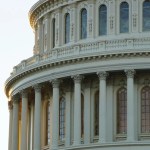News
The UK competition regulator said that the $7.3 billion acquisition will not substantially reduce competition in the satellite communications sector
This week, Viasat has moved one step closer to completing its acquisition of fellow satellite communications specialist Inmarsat, with the UK’s Competition and Markets Authority (CMA) granting unconditional approval for the deal on Tuesday.
The deal, first announced back in November 2021, would see the companies combine their satellite assets, which currently include around 20 geostationary devices providing services in the Ka-, L- and S-bands. An additional ten geostationary spacecraft are planned for launch until by 2024, with Inmarsat also seeking to deploy 150–175 low Earth orbit satellites as part of its ORCHESTRA project.
The scale of the merger immediately set alarm bells ringing for regulators around the world, many of whom quickly launched probes into the deal’s impact on market competition. The CMA was particularly concerned that the deal would lead to pricier in-flight Wi-Fi services, launching an in-depth investigation in October last year.
By March 2023, the CMA had provisionally cleared the takeover, pending the results of its Phase 2 investigation.
Now, this Phase 2 probe is complete, with the CAM finding that the merger should not have a negative impact on market competition, due largely to the expanding nature of the satellite communications sector and the emergence of new players.
““The satellite communications sector is evolving at rapid pace – new companies are entering the market, more satellites are being launched into space, and firms are exploring and entering into new commercial deals. All the evidence has shown that the sector will continue to grow as the demand for satellite connectivity increases,” said the CMA’s Richard Feasey, who chaired the investigation into the merger. “After carefully scrutinising the deal, we are now satisfied that, following the merger, these developments will ensure that both airlines and their UK customers will continue to benefit from strong competition.”
This marks the latest in a number of hurdles for the deal to clear, including permissions to proceed from both the Foreign Investment Review Board of Australia and the Committee on Foreign Investment in the US.
However, even larger hurdles are still to come, most notably from the European Commission and the US Federal Communications Commission (FCC), which are both currently conducting their own independent investigations into the merger.
The European Commission is expected to announced its decision on June 29, but the FCC’s investigation could take longer still, following complaints by rival satellite players, including Elon Musk’s SpaceX.
Want to keep up to date with all of the latest international telecoms news? Click here to receive Total Telecom’s daily newsletter direct to your inbox!
Also in the news:
Vodafone and Three UK closing in on merger
Bell partners with Air Canada for in-flight Wi-Fi
Virgin Media O2 and Good Things Foundation launch apprenticeship scheme
















